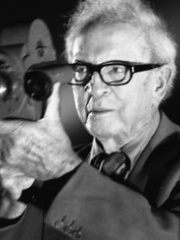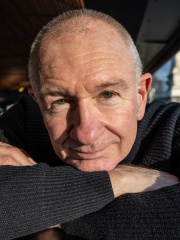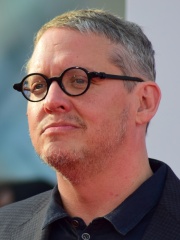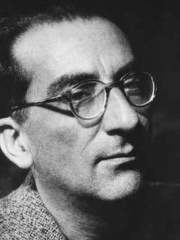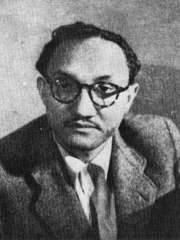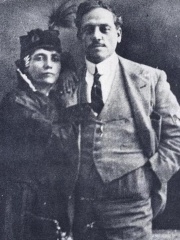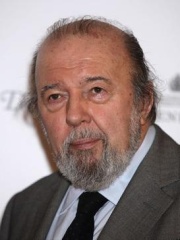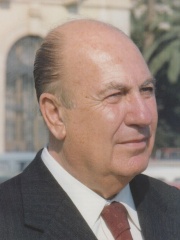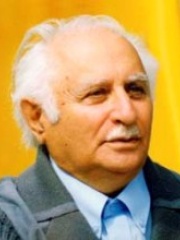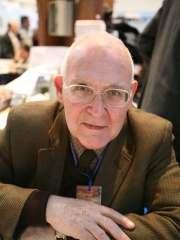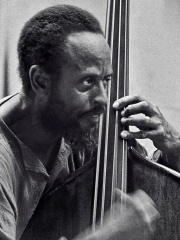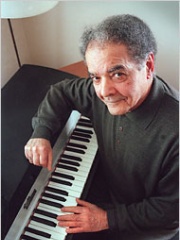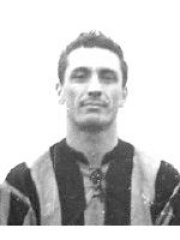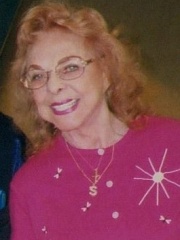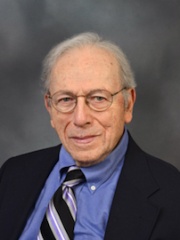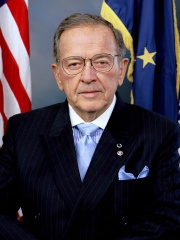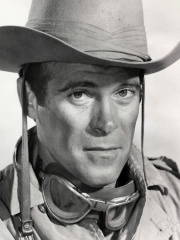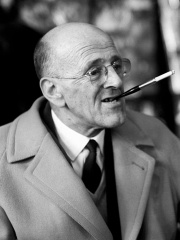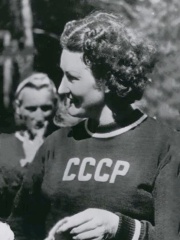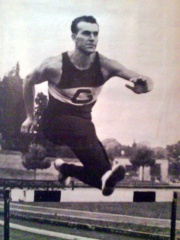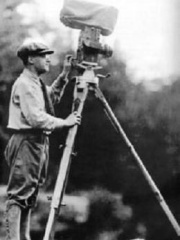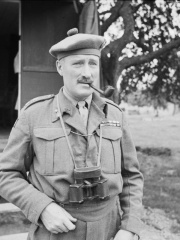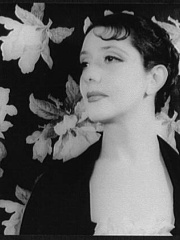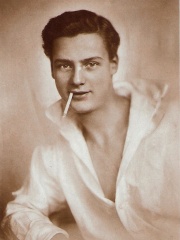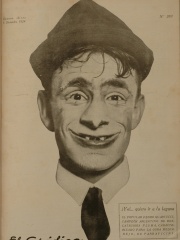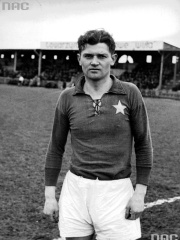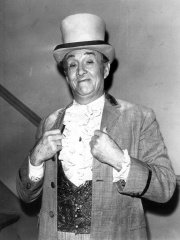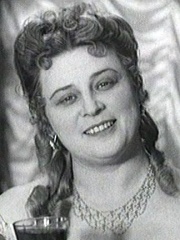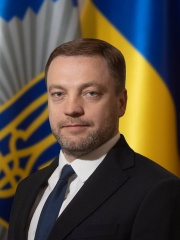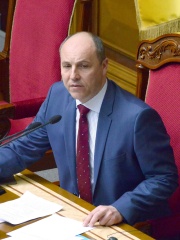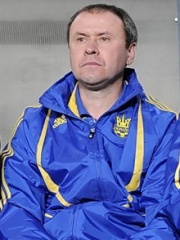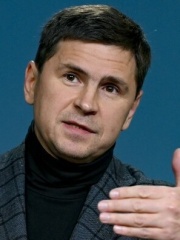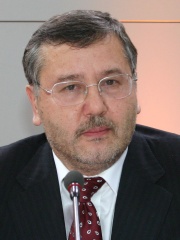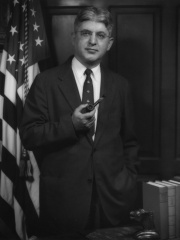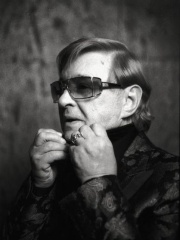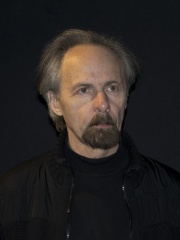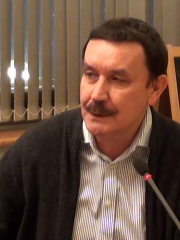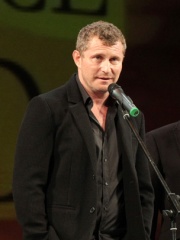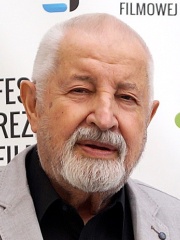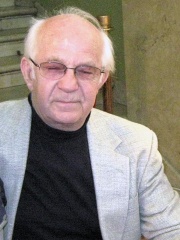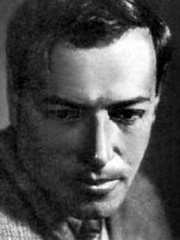Film Director
Aleksandr Alov
1923 - 1983
EN.WIKIPEDIA PAGE VIEWS (PV)
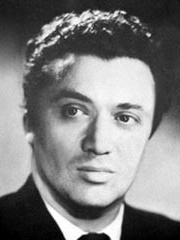
 Aleksandr Alov
Aleksandr Alov
His biography is available in 17 different languages on Wikipedia (up from 16 in 2024). Aleksandr Alov is the 1,374th most popular film director (down from 1,335th in 2024), the 912th most popular biography from Ukraine (down from 890th in 2019) and the 29th most popular Ukrainian Film Director.
Memorability Metrics
Page views of Aleksandr Alov by language
Among Film Directors
Among film directors, Aleksandr Alov ranks 1,374 out of 2,041. Before him are Stanley Tong, Irving Rapper, Douglas Slocombe, Paweł Edelman, Adam McKay, and Kurt Neumann. After him are Georgy Tovstonogov, Usmar Ismail, Elvira Notari, Peter Hall, Akiyuki Shinbo, and Rafael Gil.
Most Popular Film Directors in Wikipedia
Go to all RankingsStanley Tong
1960 - Present
HPI: 53.10
Rank: 1,368
Irving Rapper
1898 - 1999
HPI: 53.10
Rank: 1,369
Douglas Slocombe
1913 - 2016
HPI: 53.10
Rank: 1,370
Paweł Edelman
1958 - Present
HPI: 53.09
Rank: 1,371
Adam McKay
1968 - Present
HPI: 53.08
Rank: 1,372
Kurt Neumann
1908 - 1958
HPI: 53.08
Rank: 1,373
Aleksandr Alov
1923 - 1983
HPI: 53.06
Rank: 1,374
Georgy Tovstonogov
1915 - 1989
HPI: 53.05
Rank: 1,375
Usmar Ismail
1921 - 1971
HPI: 53.05
Rank: 1,376
Elvira Notari
1875 - 1946
HPI: 53.04
Rank: 1,377
Peter Hall
1930 - 2017
HPI: 53.04
Rank: 1,378
Akiyuki Shinbo
1961 - Present
HPI: 53.04
Rank: 1,379
Rafael Gil
1913 - 1986
HPI: 53.02
Rank: 1,380
Contemporaries
Among people born in 1923, Aleksandr Alov ranks 416. Before him are Isaac Schwartz, Robert Sabatier, Percy Heath, Monica Lovinescu, George Russell, and Ivano Blason. After him are The Fabulous Moolah, Alice von Hildebrand, Adolphe Hug, George Mostow, Roger Foulon, and Ted Stevens. Among people deceased in 1983, Aleksandr Alov ranks 240. Before him are Christopher George, André Chamson, Nina Dumbadze, Antonio Siddi, Joseph Ruttenberg, and Neil Ritchie. After him are Stefan Skoumal, Lynn Fontanne, Walter Slezak, Pedro Quartucci, Friedrich Scherfke, and Paul Fix.
Others Born in 1923
Go to all RankingsIsaac Schwartz
COMPOSER
1923 - 2009
HPI: 53.24
Rank: 410
Robert Sabatier
WRITER
1923 - 2012
HPI: 53.23
Rank: 411
Percy Heath
MUSICIAN
1923 - 2005
HPI: 53.20
Rank: 412
Monica Lovinescu
WRITER
1923 - 2008
HPI: 53.18
Rank: 413
George Russell
MUSICIAN
1923 - 2009
HPI: 53.14
Rank: 414
Ivano Blason
SOCCER PLAYER
1923 - 2002
HPI: 53.13
Rank: 415
Aleksandr Alov
FILM DIRECTOR
1923 - 1983
HPI: 53.06
Rank: 416
The Fabulous Moolah
WRESTLER
1923 - 2007
HPI: 52.92
Rank: 417
Alice von Hildebrand
PHILOSOPHER
1923 - 2022
HPI: 52.85
Rank: 418
Adolphe Hug
SOCCER PLAYER
1923 - 2006
HPI: 52.83
Rank: 419
George Mostow
MATHEMATICIAN
1923 - 2017
HPI: 52.79
Rank: 420
Roger Foulon
WRITER
1923 - 2008
HPI: 52.78
Rank: 421
Ted Stevens
POLITICIAN
1923 - 2010
HPI: 52.76
Rank: 422
Others Deceased in 1983
Go to all RankingsChristopher George
ACTOR
1931 - 1983
HPI: 53.69
Rank: 234
André Chamson
WRITER
1900 - 1983
HPI: 53.37
Rank: 235
Nina Dumbadze
ATHLETE
1919 - 1983
HPI: 53.35
Rank: 236
Antonio Siddi
ATHLETE
1923 - 1983
HPI: 53.34
Rank: 237
Joseph Ruttenberg
JOURNALIST
1889 - 1983
HPI: 53.33
Rank: 238
Neil Ritchie
MILITARY PERSONNEL
1897 - 1983
HPI: 53.11
Rank: 239
Aleksandr Alov
FILM DIRECTOR
1923 - 1983
HPI: 53.06
Rank: 240
Stefan Skoumal
SOCCER PLAYER
1909 - 1983
HPI: 53.05
Rank: 241
Lynn Fontanne
ACTOR
1887 - 1983
HPI: 53.02
Rank: 242
Walter Slezak
ACTOR
1902 - 1983
HPI: 52.90
Rank: 243
Pedro Quartucci
ACTOR
1905 - 1983
HPI: 52.80
Rank: 244
Friedrich Scherfke
SOCCER PLAYER
1909 - 1983
HPI: 52.77
Rank: 245
Paul Fix
ACTOR
1901 - 1983
HPI: 52.68
Rank: 246
In Ukraine
Among people born in Ukraine, Aleksandr Alov ranks 912 out of NaN. Before him are Alla Tarasova (1898), Kateryna Bondarenko (1986), Denys Monastyrsky (1980), Aleksander Serov (1951), Andriy Parubiy (1971), and Andriy Lunin (1999). After him are Hennadiy Lytovchenko (1963), Mykhailo Podolyak (1972), Anatoliy Hrytsenko (1957), Arthur F. Burns (1904), Sergei Pavlovich Baltacha (1958), and Felix Sobolev (1931).
Others born in Ukraine
Go to all RankingsAlla Tarasova
ACTOR
1898 - 1973
HPI: 53.11
Rank: 906
Kateryna Bondarenko
TENNIS PLAYER
1986 - Present
HPI: 53.11
Rank: 907
Denys Monastyrsky
POLITICIAN
1980 - 2023
HPI: 53.10
Rank: 908
Aleksander Serov
SINGER
1951 - Present
HPI: 53.09
Rank: 909
Andriy Parubiy
POLITICIAN
1971 - 2025
HPI: 53.08
Rank: 910
Andriy Lunin
SOCCER PLAYER
1999 - Present
HPI: 53.08
Rank: 911
Aleksandr Alov
FILM DIRECTOR
1923 - 1983
HPI: 53.06
Rank: 912
Hennadiy Lytovchenko
SOCCER PLAYER
1963 - Present
HPI: 53.05
Rank: 913
Mykhailo Podolyak
POLITICIAN
1972 - Present
HPI: 53.03
Rank: 914
Anatoliy Hrytsenko
POLITICIAN
1957 - Present
HPI: 53.02
Rank: 915
Arthur F. Burns
POLITICIAN
1904 - 1987
HPI: 53.00
Rank: 916
Sergei Pavlovich Baltacha
SOCCER PLAYER
1958 - Present
HPI: 52.94
Rank: 917
Felix Sobolev
FILM DIRECTOR
1931 - 1984
HPI: 52.92
Rank: 918
Among Film Directors In Ukraine
Among film directors born in Ukraine, Aleksandr Alov ranks 29. Before him are Roman Viktyuk (1936), Konstantin Lopushansky (1947), Vadim Abdrashitov (1945), Leonid Osyka (1940), Vadim Perelman (1963), and Volodymyr Dakhno (1932). After him are Felix Sobolev (1931), Janusz Majewski (1931), Jerzy Antczak (1929), Lev Arnshtam (1905), Vera Stroyeva (1903), and Nikolay Akimov (1901).
Roman Viktyuk
1936 - 2020
HPI: 55.09
Rank: 23
Konstantin Lopushansky
1947 - Present
HPI: 55.04
Rank: 24
Vadim Abdrashitov
1945 - 2023
HPI: 54.61
Rank: 25
Leonid Osyka
1940 - 2001
HPI: 54.58
Rank: 26
Vadim Perelman
1963 - Present
HPI: 54.26
Rank: 27
Volodymyr Dakhno
1932 - 2006
HPI: 54.17
Rank: 28
Aleksandr Alov
1923 - 1983
HPI: 53.06
Rank: 29
Felix Sobolev
1931 - 1984
HPI: 52.92
Rank: 30
Janusz Majewski
1931 - 2024
HPI: 52.78
Rank: 31
Jerzy Antczak
1929 - Present
HPI: 52.78
Rank: 32
Lev Arnshtam
1905 - 1979
HPI: 52.77
Rank: 33
Vera Stroyeva
1903 - 1991
HPI: 51.88
Rank: 34
Nikolay Akimov
1901 - 1968
HPI: 51.24
Rank: 35


